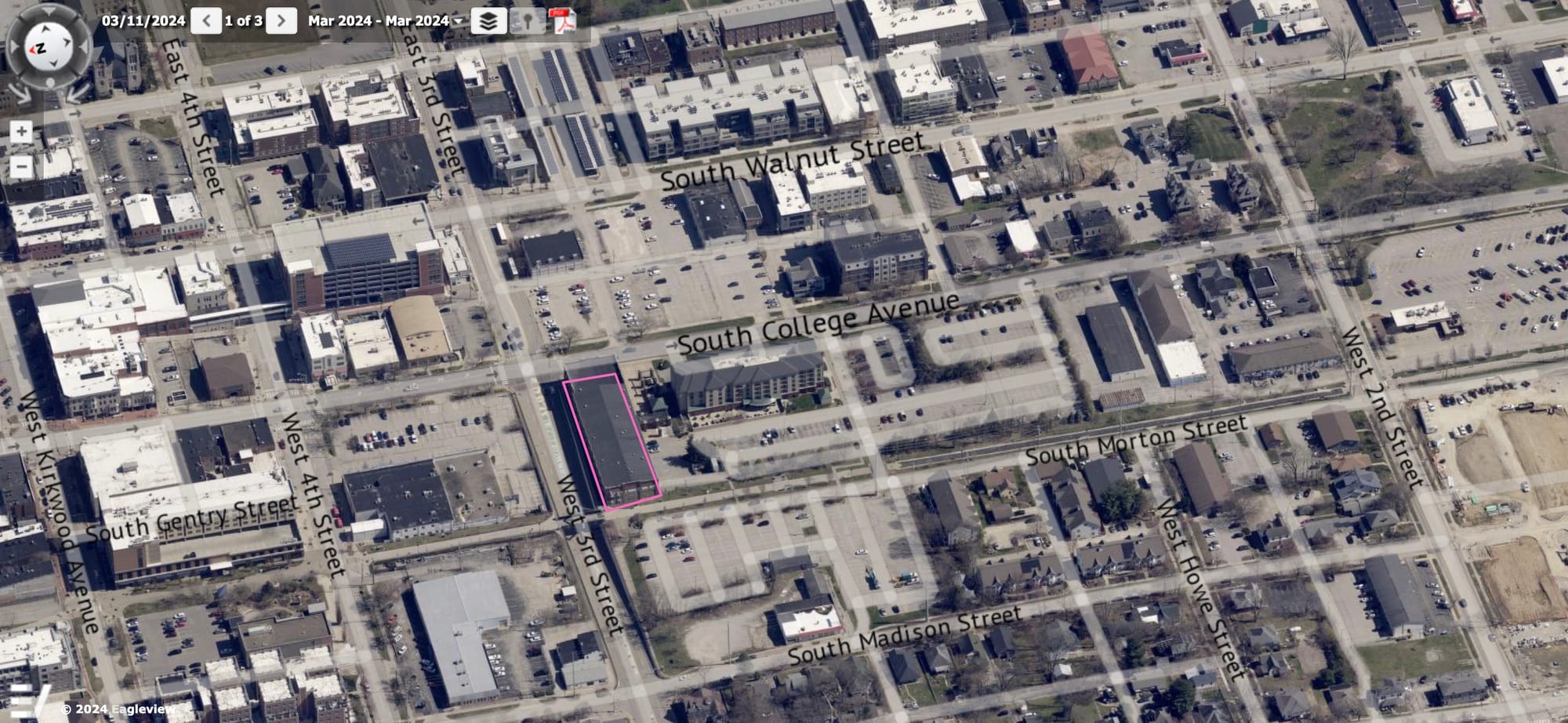Monroe Convention Center expansion notebook: Interviews for construction manager set for June 4





On the morning of June 4, representatives from three construction firms will be interviewed by Monroe County’s capital improvement board (CIB) for the job of construction manager for the convention center expansion project.
Shortlisted from the original six that responded to an early 2024 RFQ (request for qualifications) are three firms: F.A. Wilhelm Construction; Shiel Sexton; and Weddle Bros. Building Group. All respondents to the RFQ were invited to respond to the subsequent RFP (request for proposals).
The short list was announced at a special meeting of the CIB held on Wednesday afternoon.
In other business, the CIB voted unanimously not to pursue the northward expansion option for the convention center. The existing facility stands on the southwest corner of College Avenue and 3rd Street.
That outcome was already anticipated as a result of the email message sent last week to the city of Bloomington by Jim Whitlatch, the CIB’s legal counsel, indicating that the CIB would not be negotiating with the city on a the price for the parcels to the north.
A decision against the northward expansion leaves the other three compass directions in play. On Wednesday, CIB president John Whikehart asked Whitlach and Deb Kunce, with JS Held, to weigh the merits of the east, west, and south options, and to bring a recommendation to the CIB for its June 12 meeting. JS Held is the CIB’s owner’s representative for the project.
Even with responses to the RFQ in hand by mid-February, the RFP (request for proposals) for a construction manager was put on hold. The point of the pause was to give the CIB time to bring on board an owner’s representative. The CIB selected JS Held as the owner’s rep, and in mid-April issued the RFP to all RFQ respondents. The RFP is for a construction manager as constructor.
At Wednesday’s special meeting, it was JS Held’s Deb Kunce who ticked through the timeline that had led to the interview stage. Five responses were received by May 10, and those were reviewed by CIB members Adam Thies, Doug Bruce, John Whikehart, the CIB’s controller Jeff Underwood, and CIB legal counsel Jim Whitlach.
The reviewers winnowed down the five to three for the short list, which was recommended to the CIB on Wednesday and unanimously approved.
Interviews for the shortlisted construction manager firms are supposed to start at 9 a.m. on June 4 in one of the rooms of the current convention center. The three interviews will be held back-to-back, Kunce said, lasting around an hour apiece—so they’re expected to wrap up by noon.
An hour before interviews start, CIB members will get briefed on the scoring rubric that they will be using, Kunce said. Based on the scores, Kunce will compute a “best value” which she described as the proposed cost divided by the average of the scores. The firm with the “best value” will be presented to the CIB at its June 12 meeting, Kunce said.
While the formal decision by the CIB to eliminate the north option was not a surprise, a couple of CIB members did take the chance to say a word about it. Doug Bruce said that the CIB should take what relatively little money is available from the food and beverage tax for the project and put it all into the construction budget, instead of spending it on land acquisition.
Pursuing the northward expansion option would have meant depleting the current $17-million fund balance in the city’s food and beverage tax fund to about $10 million, in order to acquire the land from the city of Bloomington.
The land in question is the block at the southwest corner at College Avenue and 4th Street. It’s commonly known as the former location of the Bunger & Robertson law firm.
CIB member Spoonmore reflected on the northward expansion from his perspective as a former county councilor. He called the real estate itself “a great parcel of land.”
But Spoonmore said when the Monroe County council approved the food and beverage tax, in 2017, he did not believe that the idea was ever to use tax revenue for land acquisition. There was at that time adequate real estate already owned by local government, to pursue a convention center expansion, Spoonmore said.




Comments ()